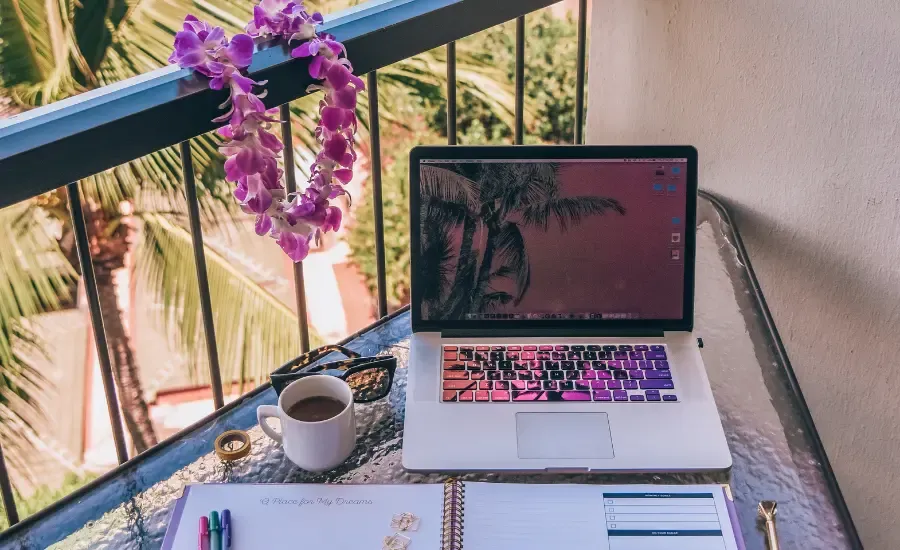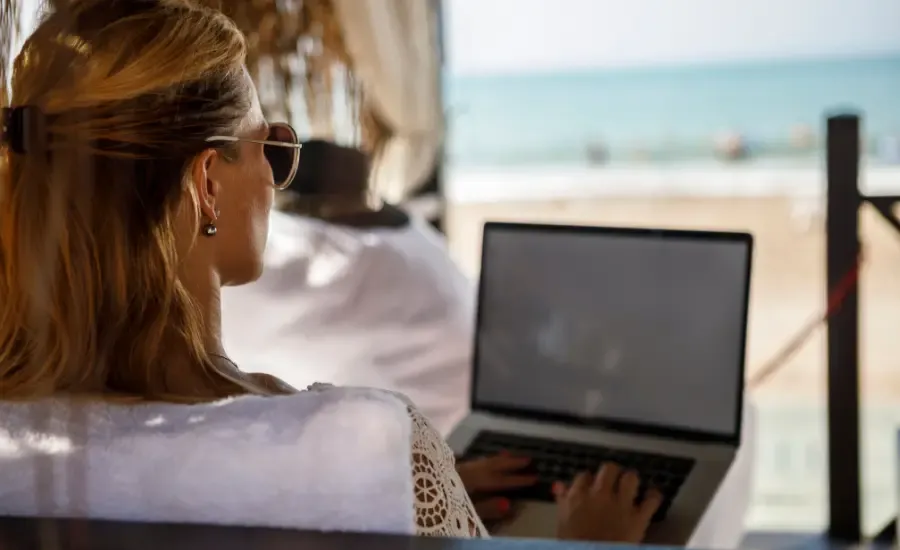Every year, I can't wait for those days of the long-awaited PTO. I meticulously plan my trips, envisioning sandy and sunny beaches (or cozy mountain getaways sometimes). I imagine lazy mornings, new adventures, and that blissful feeling of complete detachment. But then, as the date approaches, a familiar, unwelcome feeling creeps in: guilt. That nagging sensation that I'm somehow letting my team down, or that the workload will pile up uncontrollably while I'm gone. If you've ever felt guilty when taking PTO, you are absolutely not alone. In fact, you're part of a significant majority of working professionals.
PTO guilt is a pervasive issue, particularly among the millennial workforce. We've cultivated a culture where busy-ness is often equated with importance, and taking a break can feel like a sign of weakness or a lack of dedication. We worry about falling behind, about emails piling up, or even about how our colleagues and managers might perceive us. This internalized pressure leads to a shocking reality: a significant portion of our hard-earned paid time off goes unused.
The Alarming Truth About Unused PTO

Let's look at the numbers, because they paint a clear picture. According to a recent survey by LiveCareer, 59% of U.S. workers feel uneasy taking time off from work. This isn't just a fleeting thought; it’s something deeper: a deep-seated anxiety that often prevents us from fully utilizing a benefit we've rightfully earned. The top concerns cited by these workers include:
- Work will pile up while I'm gone: 19%
- I'll miss something important or lose an opportunity: 19%
- People will see me as less committed: 12%
- I'll get laid off or replaced: 8%
These anxieties are real, fueled by workplace cultures that subtly, or sometimes overtly, discourage time off. The same LiveCareer study found that 33% of workers feel pressure not to use all their PTO accrued, and a notable 9% say their employer actively discourages time off. Even more concerning, 49% report their company says it supports vacation, but workloads make taking time off unrealistic.
The result? Americans collectively leave millions of vacation days on the table. In 2018, for instance, more than 50% of American workers had unused vacation leave, totaling 768 million days. While there are some indications that this trend might be shifting slightly, the core problem of under-utilization persists. For many, the option of an unused PTO payout might seem like a small consolation, but it pales in comparison to the immense benefits of actually taking that time off.
Why We Feel This Guilt, Especially as Women

The pressure to constantly be "on" is intensified for many working women. Project Time Off's report indicated that while both men and women face PTO issues, women were more likely (58%) than men (49%) to agree that vacation time is "extremely" important to them, yet paradoxically, they use less of it. Only 44% of American women use all of their annually allotted vacation time, compared to 48% of men. This disparity often stems from factors like heightened stress from work, and a greater likelihood of feeling that guilt, the "mountain of work" they’d return to, and the risk of seeming less committed to their job.
This phenomenon points to deeper societal expectations and internal biases. We, as working women, are often conditioned to be indispensable, to take on extra responsibilities, and to push ourselves beyond limits. The thought of stepping away can trigger profound feelings of guilt all the time, making us believe that our absence will cause chaos or be perceived negatively.
The Undeniable Benefits of Taking PTO
Despite these deeply ingrained patterns, the evidence is overwhelming: using PTO can significantly reduce stress and improve employee productivity. Evidence that is backed by extensive research.
Improved Mental and Physical Health
Studies show that employees who take regular PTO experience lower stress levels, improved job satisfaction, and increased productivity. Time away from work helps employees return with fresh perspectives and renewed energy. Research indicates that taking vacations can lower heart disease risks by 32% and reduce stress-related illnesses. One study even found that for every additional 10 days off, depression decreases by 29%.
Enhanced Productivity and Creativity
When you're constantly operating at 100% without a break, you're more prone to burnout, decreased creativity, and even health issues. A real break allows you to recharge, gain fresh perspectives, and return to work revitalized and more efficient. The Harvard Business Review notes that statistically, taking more vacation leads to greater business success, lower stress, and more happiness at work and home. Research published in Frontiers in Psychology found that people are more creative two weeks after their vacation than before taking time off.
Reduced Burnout and Turnover
Chronically overworked employees are more likely to burn out, leading to decreased productivity, increased error rates, and higher absenteeism. Vacation helps cure burnout by replenishing emotional resources, such as a sense of social support and mastery. Happier, well-rested employees are more likely to stay with a company longer, reducing turnover costs.
Economic Impact
Beyond individual well-being, unused vacation time has a significant economic cost. Oxford Economics found that American companies were carrying $224 billion in liabilities due to unused vacation time. This accrual represents forfeited benefits that could otherwise stimulate the economy through travel spending.
How to Start Enjoying Your Time Off (Without the Guilt)

So, how do we break free from this cycle of feeling guilty all the time and truly benefit from the rejuvenating power of our paid time off?
Plan Ahead and Communicate Clearly
The biggest fear is often the unknown of what will happen while you're away. Address this head-on. As soon as you decide to take time off, start planning. Communicate clearly and well in advance with your manager and team. When asking your manager for time off, present a proactive plan:
- Outline your dates.
- Detail your plan for coverage. Who will handle what?
- Delegate tasks with clear instructions and deadlines before you leave.
- Set comprehensive out-of-office messages and direct key contacts to the right people
Set Firm Boundaries and Unplug
This is perhaps the most crucial step. True relaxation happens when you genuinely disconnect from work demands. Resist the urge to "just quickly" check emails or take a call. Studies show that employees who psychologically disengage from work on their vacations experience the most significant improvement in well-being. "If you're not at work but you're thinking about work on vacation, you might as well be at the office," says Ryan Grant, lead author of a UGA study (UGA Today, January 2025). Your vacation is for you. Silence notifications, delete work apps from your phone if you can, and let your team know you'll be fully offline unless there's an absolute emergency.
Prioritize Rest and Recharge
Don't pack your vacation so full of activities that you return more exhausted than when you left. Whether it's exploring a new city, lounging by the pool, hiking in nature, or simply enjoying quiet mornings at home, prioritize activities that genuinely help you relax and recharge. Engage in physical activity – it's been shown to boost well-being (UGA Today). Allow yourself time to decompress both before and after your trip. Planning a day or two to transition back into work mode can ease the shock of returning.
Shift Your Mindset
Remind yourself that taking time off is not a luxury but a necessity for your long-term health, happiness, and career sustainability. It’s an investment in your best self. When you return refreshed and energized, you are a better employee, a better colleague, and a better human being. Encourage your colleagues to take their time off too – leading by example can help foster a healthier workplace culture for everyone.
 THE WORKING GAL
THE WORKING GAL





